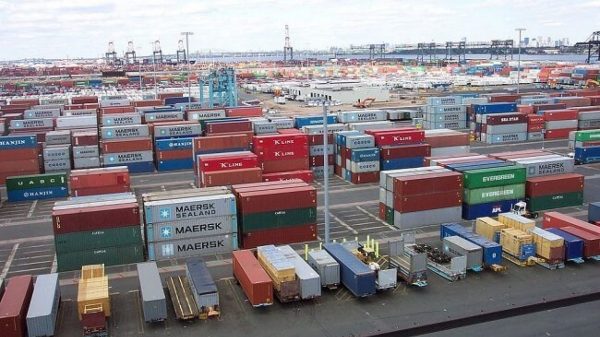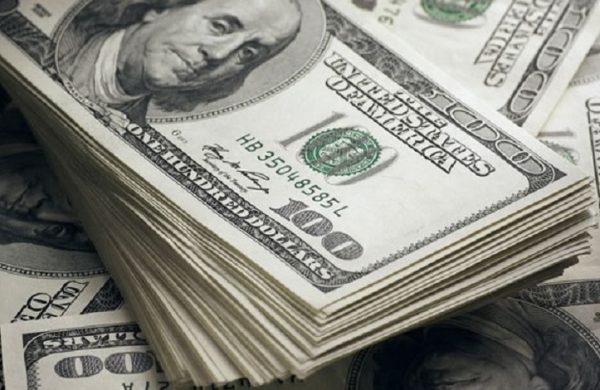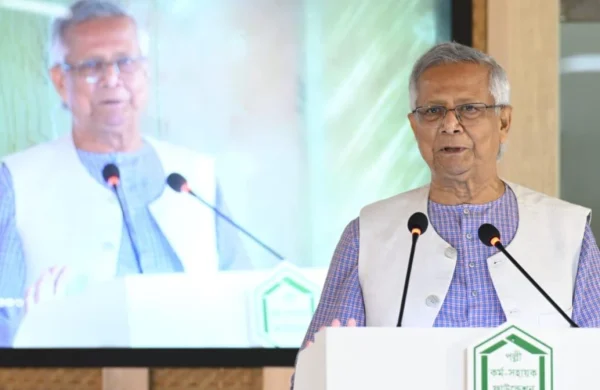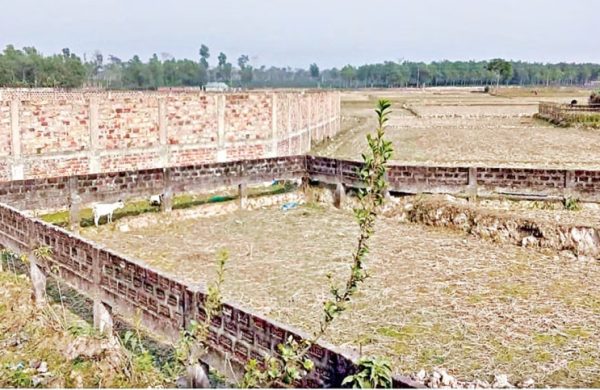Economy on track to recovery
- Update Time : Sunday, October 11, 2020

FBD Desk:
The overall economy, hit hard by the coronavirus, is on the way to recovery as several indicators of micro economy are improving, economists have said.
“The economy is turning around at bit, but how far this will be sustainable cannot not be predicted at the moment,” World Bank former lead economist Zahid Hossain said.
Remittance inflow has increased unbelievably while the RMG sector is receiving orders. Factories have reopened and the pace of production has increased. The agriculture sector was never shut.
But the question is how far the pace of recovery will accelerate. The pace of recovery in the countries of big economies is still sloth. The growth of all except China is negative.
The recovery of world economy will speed up, various research organisations have observed.
The demands have not reached previous levels although the production activities have revived. Many people have lost jobs. Innumerable numbers of people returned to the villages. The picture of a turn-around in the informal sector is not clear. The stimulus package declared by the government is helpful for big investors, but the small investors are getting less.
The economy is turning around at bit, but how far this will be sustainable cannot be predicted at the moment
World Bank former lead economist Zahid Hossain
Under such circumstances, fears pertaining to economic recovery are yet to be dispelled. Bangladesh’s exports will be affected if the European countries are hit hard by the probable second wave of COVID-19.
The wage earners’ income will also be hit hard if the Middle East countries are unable to turn around. Inflation will occur if stimulus funds do not go to the production sector. It would be a bad news for the economy if inflation goes up and the employment goes down.
Experts said employment has to be created to make economic recovery process sustainable.
The planning commission’s general economic division member Shamsul Alam said the economy has been turning around after July. The indicators used for understanding the trend of micro economy are doing fine. Such as, remittance inflow has increased. The production of food grain has registered a record this year compared to any time in the past. Exports in July-September increased by 50 percent compared to the corresponding period of the last year.
Besides, foreign reserves reflect the strength of economy. The reserves have exceeded $40 billion dollars. There is no doubt that the economy is turning around.
Shamsul Alam thinks the main challenge for the economy is to create employment as a huge number of people have lost jobs due to coronavirus. They have to bring to work.
Export is evoking hope
All indicators except one were downward even before the outbreak of the COVID-19. There was no growth in export earnings and same situation existed in import. There was a big deficit in revenue earnings. The government’s borrowing was increasing as revenue income was low. The private sector investment was stagnant for many years. In the meantime, the pandemic lashed out in all fury.
Many migrants are sending their last earnings. As of now, this is the reason behind the increase in remittance inflow
Since the gradual reopening of economy in June, the export sector brings in good news. The growth in export in the current financial year of 2020-21 (July-September) stands at 2.58 per cent. The indicator for import is not good. There is about 8:30 per cent negative growth in the sector in July-August. The import will not increase to a great extent if the economy does not return to its previous stage.
Unbelievable growth in wage earners’ remittance inflow
It was assumed that remittance will decrease as the migrants will lose jobs and return home and their income will fall. In April, the World Bank in a report said wage earners’ remittance will decrease by 20 percent worldwide. Bangladesh is eighth in terms of receiving remittance. However, the growth of remittance is 46 percent in the first three months of the current fiscal year. The reserve of foreign currency is increasing continuously due to additional foreign assistance, less import expenditure, growth in export and record remittance earnings.
However, different international research organisations view that the current trend of wage earners’ remittance will not last.
Fitch Ratings, one of three top credit ratings in the world, said wage earners’ income will decrease by 12 percent worldwide in the second quarter of the current fiscal year because, the Middle East was in crisis from earlier times due to oil price fall. Saudi Arab has adopted a strategy to cut expenditure. Meanwhile, many people return home after losing jobs. As a result, many migrants are sending their last earnings. As of now, this is the reason behind the increase in remittance inflow.
However, it is viewed that the policy of finance minister AHM Mustafa Kamal has an impact behind the growth of remittance inflow in Bangladesh. Two per cent cash incentive on wage earners’ income is being given since 2009. It is assumed that the tendency to send money through informal challenge has decreased. Now the big question is whether this income will sustain if the Middle East does not go back to faster recovery.
Some sort of relief among the people has returned due to the reopening of everything, but they cannot earn the same income as did they did before the outbreak of coronavirus. So the sustainability of this economic turnaround remains a question
Fear over inflation
The inflation is now about 6 per cent. Food inflation has risen slowly for three months. The price of rice is increasing. The government has adopted an extensive monitory policy for economic recovery. A stimulus package of over Tk 1,000 billion has been formed, the majority of which is loans on low interest rate. Bangladesh Bank in its latest three-quarterly report terms it ‘abnormal easy finance’. Bangladesh Bank said there is a fear of breaking price stability.
Inflation will rise if the fund for stimulus package does not go to the production sector, and goes to the share market or permanent asset purchase. Bangladesh Bank has emphasized on effective monitoring to bring a balance between the growth of recovery and price stability and on the coordination of policy.
Savings vs investment
In an uncertain situation, people’s savings increase, expenditure decreases. Demand will not increase if expenditure is slashed. The entrepreneurs will not go for investment if the demands are not created. As a result, new employment will not be created. Income of the people will not increase if the employment does not increase. This is s sort of cycle.
According to Bangladesh Bank latest information, the growth in deposits was 11.43 per cent in July in comparison to the corresponding period last year. The growth in credit is 10.32 per cent. The growth in the private sector loan increases to 9.20 per cent in July. The amount was 8.61 per cent in June and 8.86 per cent in May. Basically the loans started rising due to low interest rate under the stimulus packages.
How far recovery process sustainable
Big economies in the world are not thinking of growth except China. All countries are trying to increase demand. The main strength of Bangladesh growth is export.
Economists said the economic recession may deepen if a second wave of coronavirus hits Europe and America. The second wave of Spanish flu was stronger than the first one. If the demand of people in those countries does not decrease, there will be a negative impact on Bangladesh export.
Economist Zahid Hossain said the orders, which came before the second wave of coronavirus, should be supplied speedily. So, special measures have been taken to increase speed on the Dhaka-Chattogram route to reduce lead time.
He said health risks have to be brought under control to make the domestic economy vibrant. Domestic demands will be created if new normal life is started. Special social safety measures have to be taken for the new poor besides the old ones. Cash will be spent and economy will be vibrant. Some sort of relief among the people has returned due to the reopening of everything, but they cannot earn the same income as did they did before the outbreak of coronavirus. So the sustainability of this economic turnaround remains a question. (Source: Prothom Alo)


















